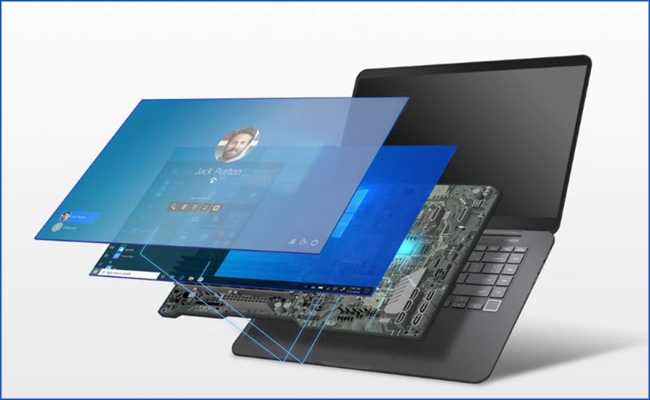Microsoft develops ‘Pluton’ Security Processor for its Windows PCs
By MYBRANDBOOK

Microsoft has announced that it’s making a new ‘Pluton’ security processor for Windows PCs to improve security and threat protection for users. The company is developing the new processor in partnership with AMD, Intel, and Qualcomm.
It is aimed to bring the same chip-to-cloud security to PCs that Microsoft initially offered on Xbox and Azure Sphere. Microsoft Pluton is also designed to replace the existing Trusted Platform Module (TPM) that is a hardware component used on PCs to store cryptographic keys and measures to secure the system.
TPMs have helped Windows PC users get a secured computing experience. However, with attackers building sophisticated techniques that target the communication channel between CPUs and TPMs to steal user data and sensitive information through a physical attack, Microsoft now looks at building Pluton as an ultimate solution.
In a blog post, David Weston, Director of Enterprise and OS Security at Microsoft, said, “Windows devices with Pluton will use the Pluton security processor to protect credentials, user identities, encryption keys, and personal data. None of this information can be removed from Pluton even if an attacker has installed malware or has complete physical possession of the PC”.
The Pluton processor is claimed to have the ability to isolate sensitive data such as encryption keys from the rest of the system. This would help block emerging attack techniques including speculative execution from accessing key material. There is also a Secure Hardware Cryptography Key (SHACK) technology that would help ensure that keys are not exposed outside of the protected hardware.
Microsoft also wants to address the delay in security updates with Pluton that will be integrated with the Windows Update process.
The Pluton processor will be integrated within future chips from AMD, Intel, and Qualcomm to offer users PCs with inbuilt security. This would reduce instances of CPU exploits like Meltdown and Spectre that impacted a large number of Windows users in the past.


Legal Battle Over IT Act Intensifies Amid Musk’s India Plans
The outcome of the legal dispute between X Corp and the Indian government c...

Wipro inks 10-year deal with Phoenix Group's ReAssure UK worth
The agreement, executed through Wipro and its 100% subsidiary,...

Centre announces that DPDP Rules nearing Finalisation by April
The government seeks to refine the rules for robust data protection, ensuri...

Home Ministry cracks down on PoS agents in digital arrest scam
Digital arrest scams are a growing cybercrime where victims are coerced or ...


Icons Of India : MADHABI PURI BUCH
Madhabi Puri Buch is the first-female chairperson of India’s markets...

ICONS OF INDIA : SRIDHAR VEMBU
Sridhar Vembu is the chief executive officer (CEO) of Zoho Corporation...

ICONS OF INDIA : SANJAY GUPTA
Sanjay Gupta is the Country Head and Vice President of Google India an...


GeM - Government e Marketplace
GeM is to facilitate the procurement of goods and services by various ...

CSC - Common Service Centres
CSC initiative in India is a strategic cornerstone of the Digital Indi...

C-DAC - Centre for Development of Advanced Computing
C-DAC is uniquely positioned in the field of advanced computing...


Indian Tech Talent Excelling The Tech World - Dheeraj Pandey, CEO, DevRev
Dheeraj Pandey, Co-founder and CEO at DevRev , has a remarkable journe...

Indian Tech Talent Excelling The Tech World - Steve Sanghi, Executive Chair, Microchip
Steve Sanghi, the Executive Chair of Microchip Technology, has been a ...

Indian Tech Talent Excelling The Tech World - Shantanu Narayen, CEO- Adobe Systems Incorporated
Shantanu Narayen, CEO of Adobe Systems Incorporated, is renowned for h...
 of images belongs to the respective copyright holders
of images belongs to the respective copyright holders